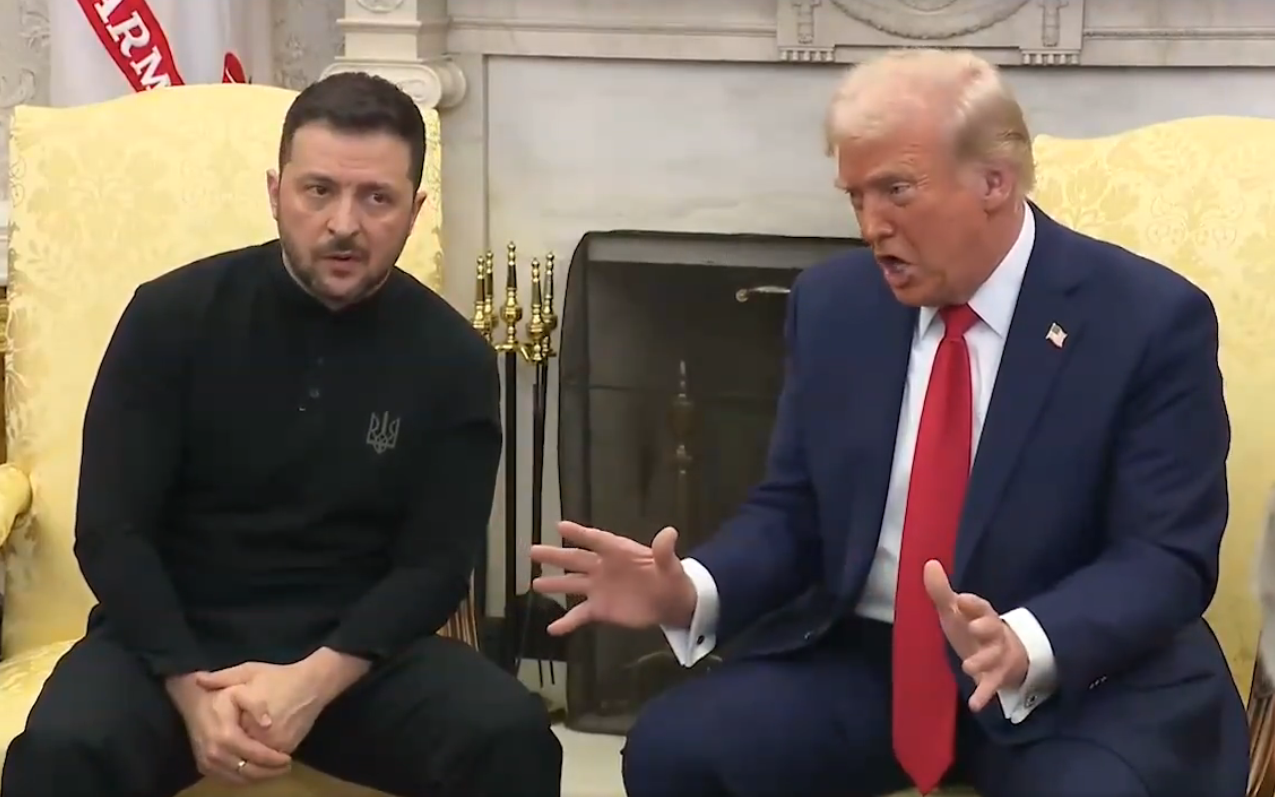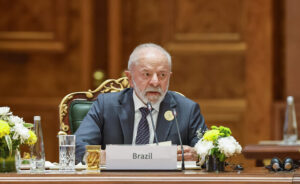
Published 03/01/2025 19:33
The meeting between US President Donald Trump and the Ukrainian leader Volodymyr Zelensky on Friday (28), designed to discuss a ceasefire in the war against Russia, defined in a rare televised confrontation among heads of state. The meeting, which was already surrounded by expectations, revealed the deterioration of relations between the two countries and changes in American strategy in the face of conflict.
During the meeting, Trump harshly criticized Zelensky, stating that the Ukrainian President “is not ready for peace” and that his posture could lead to an even greater conflict. “You are playing with the lives of millions of people. You are playing with World War I, ”said the US representative.
Zelensky, in turn, countered Trump’s lines and warned that the US could regret making a deal with Russia without considering Ukrainian interests. “You have a beautiful ocean, and you don’t feel now, but you will feel in the future,” he said, in reference to the US geographical security.
Vice President Jd Vance has intensified the tension by highlighting Ukraine’s military difficulties: “You are forcing recruits to the front lines.” Zelensky countered: “During a war, we all have problems, even you,” and asked Trump not to firm “no commitment to a killer,” in reference to Vladimir Putin.
With Trump’s arrival at the White House, the US altered the posture of war. By excluding Europe from negotiations, Washington seeks a direct ceasefire with Moscow, isolating Zelensky. During the meeting, Trump made it clear that he expects Ukraine to accept an agreement as soon as possible: “Either you will make a deal or we are out. If we are out, you will fight. I don’t think it will be beautiful. ”
Zelensky’s disposal and “withdrawal” of Ukrainian resources

Political scientist Ana Prestes, PCdoB’s International Relations Secretary, evaluates that the clash was predictable. “Trump has always treated Zelensky with hostility, dating back to the accusations against Hunter Biden,” he says, mentioning the alleged involvement of the former president’s son with a corrupt Ukraine company. Trump pressured Zelensky on the matter when president, but was unsuccessful.
Ana criticizes the US approach: “Biden used Ukraine as puppet in a war by power of attorney against Russia; Trump now discards her, accusing Zelensky of ungrateful and invalidating her legitimacy. The scene was pathetic and unpublished, with most European countries demonstrating solidarity with Zelensky. ”
Ana highlights the change in US foreign policy: “Washington has isolated Europe and tries a direct agreement with Russia, ignoring Zelensky, called” dictator “by Trump.” The Ukrainian maintained the presidential mandate amid martial war justifications.
Another Trump requirement to continue supporting Ukraine was the provision of access to rare land resources, elements essential to the high technology industry and the military sector. “Let’s use this technology in all the things we do, including artificial intelligence [IA] and military weapons, ”said Trump. About these demands, she denounces: “It’s a signed withdrawal. The US use military aid as a bargaining currency for strategic resources, essential for [inteligência artificial] and weapons ”.
Protocol breaking and domestic image play

For researcher José Victor Ferro, from the Observatory of Regionalism (ODR), the episode was an “unprecedented protocol break”. “At first, the conversation between Zelensky and Vance maintained a passive-antique tone, but when Trump came into the discussion, the level dropped dramatically. Trump treated Zelensky as a participant in The Apprenticein a vertical relationship of boss and employee, ”he analyzes, citing the reality show led by Trump. Ferro points out that both sought to strengthen their internal narratives:
- Trump and Vance: “They sell themselves as peace advocates, but they despise international law by negotiating directly with Russia. They want to show that they are ‘full of war’ ”.
- Zelensky: “Needs nationalist fuel to support resistance, as Ukraine is at military and diplomatic disadvantage.”
Zelensky’s lone exit from the White House and his interview at Fox News, Trump’s stronghold, were symbolic gestures. The political scientist highlighted these symbolic details: “Zelensky left the White House alone, something unusual on visits from heads of state. Then he gave Fox News interview, where an anchor asked if he should not apologize to Trump. Ukraine diplomacy is now in a very delicate position. ” “Zelensky refused to apologize, maintaining a resistance stance, even in hostile territory,” says Ferro.
International Impact: EU and Canada in Check
The confrontation has aggravated tensions between the US and traditional allies. Ana points out that countries such as Germany, France and Canada expressed solidarity with Zelensky, but lack strength to replace US support. “Europe depends on NATO and has no military autonomy. Canada, in turn, is economically tied to the US, ”he explains.
Iron adds: “The episode consolidates the perception that the US is an unstable partner. The EU, created under NATO’s umbrella, now faces an existential dilemma: how to ensure safety without the US? ” “The international impact of this clash is significant. Traditional US partners were already suspicious of Washington, and now this distrust only consolidates. ”
Terra Raras: The Game Behind the War
Trump’s requirement for access to Ukrainian rare lands reveals a strategic interest behind Belicista rhetoric. “We have a lot of oil, but not rare land,” said Trump, highlighting his importance for military technology and Ia. For Ana, “it is a colonialist withdrawal, where military aid conditions access to vital resources.”
The episode highlights a new phase of the conflict. While Zelensky seeks to secure international support, Trump tries to end the war unilaterally without considering European demands.
Russia remains open to negotiations, with the position of Ukraine becoming increasingly fragile. “Zelensky leaves the US clearly about the next steps,” says Ana. Ferro concludes: “Nationally, Trump and Zelensky are strengthened. Globally, the US pay the price for despising allies. The question is: How long will the West be tolerate this rupture? ”
The meeting takes place on the third anniversary of the war (24/02), marked by criticism from Zelensky to the exclusion of Europe in negotiations. While Putin insists on military victory, the White House seems to prioritize economic interests on geopolitical cohesion.
Source: vermelho.org.br

